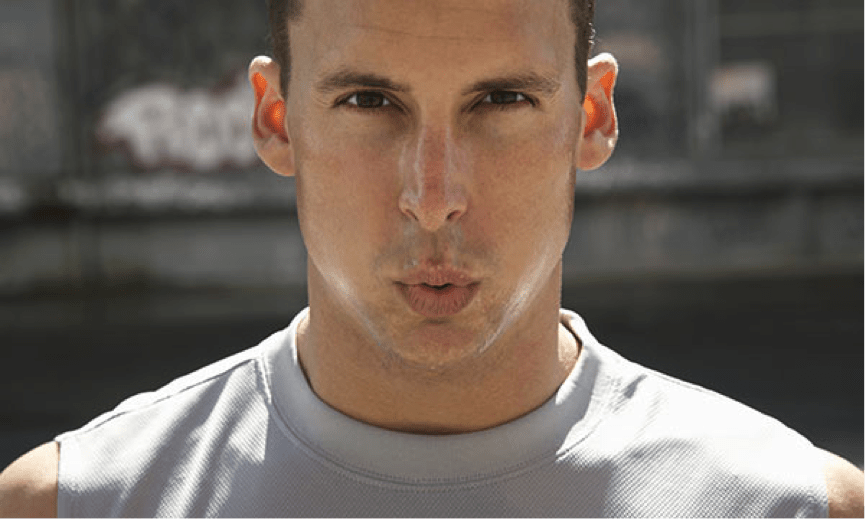When preparing for a big event very few athletes take the time to sit back and just breathe. The simple acts of inhaling, exhaling and relaxing for just a few moments can have a significant impact on sporting performance. Take the recent Rugby Union World Cup for example – the likes of Dan Carter and Andy Farrell lining up conversion kicks inhale deeply before exhaling to allow them the time to relax and focus on the task at hand. Deep breathing is part of their routine as they bid to ‘tune out’ the crowd, as well as any other distracting factors, and focus solely on the act of kicking the ball. With this in mind, this week’s Tuesday Tip will focus on the art of deep breathing and what it can do for the body.
The ability to relax and focus on the skill to be executed is not something that can be implemented straight off the cuff but rather developed over time and with practice. There is a reason that the likes of Carter and Farrell to name a few are the cream of the crop and it’s not because they are an advertisers dream, but because they are willing to take time out of their lives to practice.
So what can we do to ‘tune out’ distracting factors? Or ensure that we are relaxed before an event? Well the answer is Progressive Muscle Relaxation (PMR). This technique involves tensing and relaxing muscle groups for 20 minutes a day, in a quiet location where you can ‘let go’ and clear your mind of worry.
It’s simple to do and a great technique to learn before an event. One method of PMR is to start by tensing and relaxing the muscles in your toes and progressively working your way up to your neck and head. You can also start with your head and neck and work down to your toes. Tense your muscles for at least five seconds and then relax for 30 seconds, and repeat. It can’t get any simpler than that!
What can deep breathing do for you?
By practising PMR, you will have a better understanding of your breathing and from that you can then implement shorter and more concentrated breathing exercises within an event-day context. Williams & Harris (2001) discovered advantageous benefits in concentrated breathing in athletes and while it’s not possible to implement a breathing exercise in the middle of a football match or marathon for example, there are however many situations in which the ability to relax through deep breathing can be profound.
So practicing PMR mid race probably isn’t the best idea, but before an event? Most definitely, Athletes commonly struggle with ‘over arousal’, where they are overly anxious and stressed or even over-motivated, before an event and this can have a debilitating affect on performance during the event (Hillmann, Apparies, Janelle and Hatfield, 2000). If you take your HRV measurement with ithlete before an event and find your HRV drops, this will probably sound all too familiar!
The use of PMR and concentrated breathing techniques can help overcome these negative pre-event effects by decreasing arousal to a level that is more suitable for a race situation, hence ensuring that performance is not badly affected.
So next time you are at a race and the pre race nerves and anxiety kick in remember what deep breathing can do for you!
*Later this month we will be teaming up with renowned breathing expert Professor Alison McConnell, author of “Breathe Strong, Perform Better” who will be providing tips for optimising your breathing during exercise. So keep an eye out on our blog and social media!*
References
Williams, J., & Harris, D. V. (2006). Relaxation and energizing techniques for regulation of arousal. In J. M. Williams (Ed.), Applied sport psychology: Personal growth to peak performance 5th ed. (pp. 285-305). Mountain View, CA: Mayfield Publishing.
Hillman, C.H., Apparies, R.J., Janelle, C.M., & Hatfield, B.D. (2000). An electrocortical comparison of executed and rejected shots in skilled marksmen. Biological Psychology, 52, 71-83.


I’ve been reading this most interesting blog for months now and still remain amazed at how few people seems interested . This comment appears to be the first and it is written the 31 of December to this article date 10 of November. ( Huffington Post blog is 110 000 000 views a month. ) What is in this blog there isn’t in HP ? Incitement to exercice and work ? The other way around what is in HP that isn’t in this blog ? How do you translate the french : Savoir faire et faire savoir ?
As usual please do correct spelling and grammar …since : I’m bad at that game ( I’m even worse in French ) and comments are not editable
-If you take your HRV measurement with ithlete before an event and find your HRV drops- To this moment I believed the HRV drops was due to the effort itself – Am I right ? Should I believe “performance anxiety” plays it’s part too ?
You are spot on, event day nerves and anxiety can certainly reflect in your HRV. You might be interested in this blog post which discusses the topic further.
Best, Laura